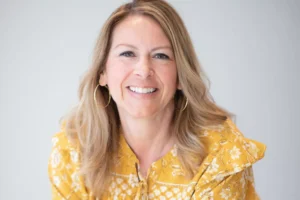So you’re in a small group.
Or maybe you’re thinking about joining one.
While every group may be a little different — with different individuals, different objectives and a different feel — your experience with your small group has a lot to do with you.
Here are six ways to get more out of your small group:
1. Choose the right group.
Having recently moved to a new town, Brandy wanted to get more connected with her church by joining a small group. So she submitted her name and information to the small group coordinator. When Brandy received her small group assignment, she had been placed in a group composed of couples in their 50s and 60s.
“I have nothing against intergenerational groups,” Brandy says, “But my goal in joining a small group was to build community with those who were in my same stage of life.”
Because Brandy knew what she wanted, she spoke with the small group coordinator and was reassigned to a group of people in her same life stage. She’s been faithfully attending for a year and looks forward to group each week.
Before you join a small group, decide what you hope to get out of it. Are you looking for community? Outreach opportunities? Bible study? Accountability with members of the same gender? Mentorship?
Speak with the leaders of potential groups to find out if the group has the elements you’re looking for.
In “Will Your New Small Group Survive Past Valentine’s Day?” one small group leader describes the choosing process this way:
Every group has its own ethos and vibe, so we welcome people to visit a couple of groups before they decide on the one to join. We let them know that they may visit a great group of people, but feel like they simply don’t fit and that’s alright. However, once a person decides on a group we ask them to strongly engage and consistently attend.
2. Be transparent.
Small groups are only transformational when people can be real and authentic with one another, especially about their struggles.
In his article, “Confessing ‘Safe Sins,'” Jon Acuff introduces the concept of giving the gift of going second:
When you go first, you give everyone in your church or your community or your small group or your blog, the gift of going second.
It’s so much harder to be first. No one knows what’s off limits yet and you’re setting the boundaries with your words. You’re throwing yourself on the honesty grenade and taking whatever fall out that comes with it. Going second is so much easier. And the ease only grows exponentially as people continue to share.
Being willing to be the first to answer a question or share your “ugly side” with the people in your small group gives them permission to be real — good, bad or ugly. Go ahead, be the first.
3. Pay attention.
I remember often feeling distracted during small group. My mind would wander to the stresses of the day or all I had to do that week. Sometimes when it came time to mingle over brownies and lemonade, I didn’t remember a ton about what we had discussed.
A friend of mine takes a notebook to small group each week and writes down people’s prayer requests.
“People are more willing to share when they know someone is truly paying attention,” she says. “Plus, it’s a great way to remember when someone is having surgery or going on vacation.”
4. Hang out outside of group.
My favorite and most long-lasting small group was a group of friends from my church that got together to do improv comedy.
Each week we would share a meal, practice improv and then spend some time praying for each other’s needs. Along with our weekly practices, we often got together outside of group to eat out, take a day trip or go for a hike. It wasn’t an official church small group, but the family-like community and life-giving conversation I experienced there encouraged me spiritually.
The church small groups I’ve attended that have fostered a similar camaraderie have been the most influential in my life, because of the relationships.
In “Five Essentials for Small Group Health,” Randall Neighbors emphasizes that relationships must be a priority:
Holistic small groups can only work when relationships between group members are considered number one. And that means having regular contact outside of meetings. I’ve experienced a vast majority of the transformation in my life through a small group experience, and it happened because of this principle. The groups have been very intimate friends of mine with whom I can share transparently.
If this isn’t your group’s strong suit, you may need to be the one to invite people over for a meal or arrange to go play mini-golf together. You may also want to take the initiative to get to know some of your group members individually by meeting for coffee.
5. Remember it’s not all about you.
While it’s helpful to be choosy when selecting a small group, once you’ve joined one, your focus shouldn’t primarily be on how the group can satisfy your needs.
The pastor of small groups at my church writes on his blog:
You and I may join a small group for personal reasons and desires, but the ultimate purpose just might not have anything to do with our spiritual goals or purposes.
Small group life is genuinely more about others than it is about self. That’s why I love Dietrich Bonhoeffer’s quote from his classic book Life Together, ‘The Christian needs another Christian who speaks God’s Word to him. He needs him again and again when he becomes uncertain and discouraged…The Christ in his own heart is weaker than the Christ in the word of his brother.’
6. Go.
If you are in a small group, at some point you will feel completely exhausted the night your group meets. Go anyway. You will also likely have the greatest last-minute opportunity arise on that night. Go anyway. Additionally, the finale of your favorite TV show will, you guessed it, be on that night. Go anyway.
You will only get as much out of your small group as you put into it. Making your small group a priority allows you to truly invest in community. Plus, you honor fellow members by valuing them enough to show up … every time.
So, get more out of your small group. Better yet, give more. You’ll be glad you did.
Copyright 2013 Suzanne Hadley Gosselin. All rights reserved.










